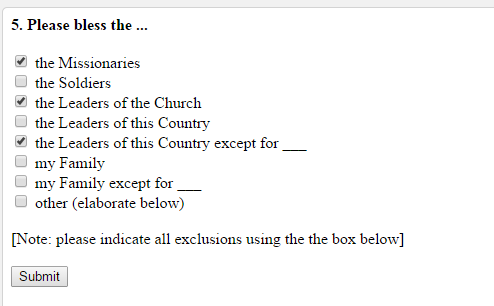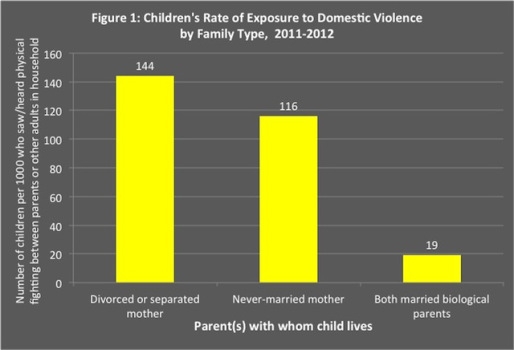-
•
•
54 responses
The Pew Research Center is releasing the results of its “extensive new survey” on religion in America. In “America’s Changing Religious Landscape,” it summarized changes for reported religious identification: Evangelical Christians dropped 0.9% (from 26.3% of the US population in 2007 to 25.4% in 2014), Catholics fell 3.1%, Mainline Protestants fell 3.4%, and “Unaffiliated” rose 6.7% (from 16.1% to 22.8%). Overall, adults identifying themselves as Christian dropped from 78.4% to 70.6%. America is becoming less religious and less Christian. Read More
-
•
•
2 responses
-
•
•
148 responses
You have probably heard about Joseph Smith’s Polygamy: Toward a Better Understanding (Greg Kofford Books, 2015; publisher’s page) by Brian C. and Laura H. Hales. It has been getting a lot of attention, coming as it does in the wake of the recently released polygamy essays at LDS.org. Furthermore, the book follows the three-volume treatment of the history and theology of Joseph Smith’s polygamy, authored by Brian C. Hales and (for volumes 1 and 2) Don Bradley and also published by Kofford. Not having read the three volumes, I assume the 100 pages of narrative text in this shorter volume,… Read More
-
•
•
One response
-
•
•
45 responses

If families couldn’t be together forever, the church could likely avoid many of the controversies concerning its history and contemporary practices. Read More
-
•
•
7 responses
-
•
•
15 responses
It’s time for a discussion of Russell Stevenson’s For the Cause of Righteousness: A Global History of Blacks and Mormonism: 1830-2013 (Greg Kofford Books, 2014; publisher’s page). I bought my copy at a book signing at Benchmark Books in Salt Lake. Deseret Book is carrying the book, but if you live in Utah County go pick up a copy at Writ & Vision, Brad’s new operation (on West Center in Provo, used to be Zion’s Books). We are fortunate to have Russell presently doing a guest blogger stint here at T&S, so I look forward to his responses to my… Read More
-
•
•
3 responses
-
•
•
26 responses

So this week, the Salt Lake Tribune sponsored a live “Trib Talk;” the topic was “what Mormon women want.” You can watch it here. Afterwards, there was criticism that there wasn’t a traditional or a conservative or a happy-with-the-status-quo (or whatever term you’d prefer) position represented. (There was also criticism that, at least initially, it was planned as an all-white panel, but that’s a topic for a different post.) I have heard that more-traditional women were invited, but either refused or later backed out. There is also this dialogue you can watch, featuring Melissa Inouye, who identifies as an egalitarian… Read More
-
•
•
47 responses
This is the third and final post on B. Carmon Hardy’s Doing the Works of Abraham: Mormon Polygamy: Its Origin, Practice and Demise (Arthur H. Clark Co., 2007). The simple story of the end of LDS polygamy is that it ended in 1890 with the Manifesto. The not-so-simple story involves a Second Manifesto in 1904, which raises the obvious question, “If the First Manifesto ended polygamy, why the need for a Second Manifesto?” The First Manifesto did not end the officially sanctioned LDS practice of polygamy. In fact, it took twenty years to fully execute that momentous institutional change of… Read More
-
•
•
10 responses
In a few minutes I’ll be leaving to travel to California, where I’ll be speaking this weekend at the conference of the Mormon Scholars in the Humanities. I’ll be speaking Friday morning on Karl Ove Knausgaard, and Saturday on Nibley + Terryl & Fiona Givens on atonement theory. Sunday evening at 7:00 pm, I’ll be speaking to the Bay Area Mormon Studies Council on the topic of “Disenchanted Mormonism: How (and Why) to Be Religious but not Spiritual.” The talk will be at the Berkeley Institute, located at 2368 LeConte Avenue. This event is open to the public — please come… Read More
-
•
•
2 responses
-
•
•
30 responses
I’m not susceptible to guilt. I’m sensitive to social pressure, for sure, and can be “guilted into” doing or saying things I don’t really mean. I feel terrible when I’ve failed to meet an obligation or hurt another person. But I don’t really feel that I’ve sinned — I don’t have the inner sense that God is unhappy with me, that I’m unworthy, or that I need divine forgiveness. I just want to repair my mistakes, or feel frustrated if I can’t. I sat in an Episcopal Easter vigil a few days ago, and the liturgy dwelled for a time… Read More
-
•
•
70 responses

I’m pleased to share a post written by my friend Christian Harrison. I’d like to write a few words about something that was said, during the Saturday morning session of General Conference.I grew up in Spokane, Washington. Living so close to the Canadian border, I frequently came across the random Canadian penny or dime. As a child, I learned that they were easily used to pay at the cashier but they were rejected outright by vending machines.You see, those Canadian coins weren’t counterfeit, they were just foreign. The cashiers knew the difference… but the machines did not. And what separates… Read More
-
•
•
7 responses
-
•
•
6 responses
Choir: He Is Risen President Uchtdorf conducted this opening session. Choir: My Redeemer Lives Invocation: S. Gilford Nielsen Choir: He Sent His Son Elder Robert D. Hales: Preserving Agency, Protecting Religious Freedom The blessings we enjoy now are because we made the choice to follow the Savior before this life. To everyone hearing or reading these words, whoever you are and whatever your past may be, remember this: it is not too late to make that same choice again and follow Him. As we walk the path of spiritual liberty in these last days, we must understand that the faithful use… Read More
-
•
•
6 responses
President Eyring is conducting this session of Conference, with music by the Tabernacle Choir. Invocation by Sister Linda S. Reeves, Relief Society Second Counselor. Benediction by Elder Kevin S. Hamilton of the Seventy. For this on-the-fly summary, text in quotation marks is a direct quote of a speaker, subject to correction when transcripts are available; other text is my summary of remarks by a speaker; and text in brackets [like this] is my own helpful commentary. Read More
-
•
•
9 responses
President Uchtdorf conducted this opening session. Choir: For the Strength of the Hills Invocation: David L. Beck Choir: On This Day of Joy and Gladness President M. Russell Ballard: The Greatest Generation of Young Adults I know I speak for my brethren when I tell you that we wish it was possible for us to know all of you personally, and to be able to tell you that we love you and we support you. … what we need now is the greatest generation of young adults in the history of the Church. We need your whole heart and soul. We… Read More
-
•
•
8 responses
Conducting: Pres Eyring Opening Song: Praise to the Lord, the Almighty[oddly, I have had this song running through my head continuously since yesterday. Maybe I’m inspired?] Music by Young Single Adult Choir from Davis and Weber Counties, Utah [Wearing “Easter egg colored clothing,” according to the people sitting in my front room with me] Prayer: Sister Stevens President Uctdorf: Sustaining Read More
-
•
•
10 responses
Choir: Guide Us, Oh Thou Great Jehovah President Uchtdorf conducted this opening session. Choir: Glory to God on High Invocation: Timothy J. Dyches President Henry B. Eyring: “Is Not This the Fast that I Have Chosen?” When we offer succor to anyone, the Savior feels it as if we reached out to succor Him. There are more hungry, homeless, and lonely children of Heavenly Father than we can reach. And the numbers grow ever farther from our reach. So the Lord has given us something that we each can do… It is the law of the fast. Your fast offering will… Read More
-
•
•
13 responses
Religion isn’t about sin. Thinking that religion is about sinning (or not sinning) is like thinking basketball is about fouls. You should stop fouling but you can’t make the game be about fouls. That’s an impossible way to play basketball. And, more, it’s an impossible way to be religious. Read More
-
•
•
2 responses
Jeder soll nach seiner Fasson selig werden—everyone may find sacred bliss in their own way, in Frederick the Great of Prussia’s formulation of enlightened commitment to religious tolerance. Nowhere is this sentiment more evident today than at a community health club. Read More
-
•
•
10 responses

Are you feeling pressed for time? Just don’t have the energy to remember prayer? Download the new Auto-Pray (TM) app today! You’ll spend about ten minutes in initial setup. Using handy check-the-box options, indicate your prayer preferences, such as the standard package (1 morning, 3 meals, 1 evening) or any of a number of custom packages. You can go with the basic prayer (“we thank Thee for this day,” “we thank Thee for this food”) or add options of your choice. Want to thank God for the missionaries during morning prayer, and the Prophet during evening prayer? It’s as simple… Read More
-
•
•
23 responses
In my prior post, I looked briefly at the origins of polygamy. Again using documents from B. Carmon Hardy’s Doing the Works of Abraham: Mormon Polygamy: Its Origin, Practice, and Demise (Arthur H. Clark, 2007), I will now look at the public practice of polygamy in early Utah. How did the Saints in Utah explain it to the world and what did visitors to Salt Lake City say about what they observed? Read More
-
•
•
3 responses
-
•
•
81 responses

In a post at By Common Consent over the weekend (What has two thumbs and doesn’t give a crap about the Family?), Rebecca J writes that “If I’m not currently standing up for the Family, it’s… really just that I don’t care enough about the Family. I don’t think I care at all.” She goes on to write: I’m really not sure what they [Church leaders] mean. I mean, it can’t mean that I’m supposed to be speaking out against divorce or same-sex marriage or unwed parenthood because if it did, they would just come out and say that, right?… Read More
-
•
•
2 responses

One of the themes I’ve explored repeatedly in talking about Genesis and Bible interpretation in general is that of genre, and the necessity of recognizing the genre of the material we’re reading. Today I came across a easy-to-understand analogy for this. Read More
-
•
•
37 responses
As I watched the first General Women’s Session of conference (at least the first not retroactively declared as such) last night, I was once again taken aback by the vocal styling of the female speakers. As much as I love hearing women speak, almost every time I hear one in a general church meeting it requires extraordinary effort to focus on the message while ignoring the twinge in the back of my jaw at the awkward, stilted speech patterns. I respect and admire these women, but I much prefer to read their words than listen to them. As soon as the first… Read More
-
•
•
20 responses
Those wanting to follow the counsel from the first session of General Conference last night about the importance of defending the family will be very interested in this article (please ignore the click-baity headline and read the actual article). A much shorter version of the article was published in the Deseret News recently, but I think that even for the tl;dr crowd, the longer version is definitely worth the investment of time. This article is also well worth reading. Read More
-
•
•
10 responses
